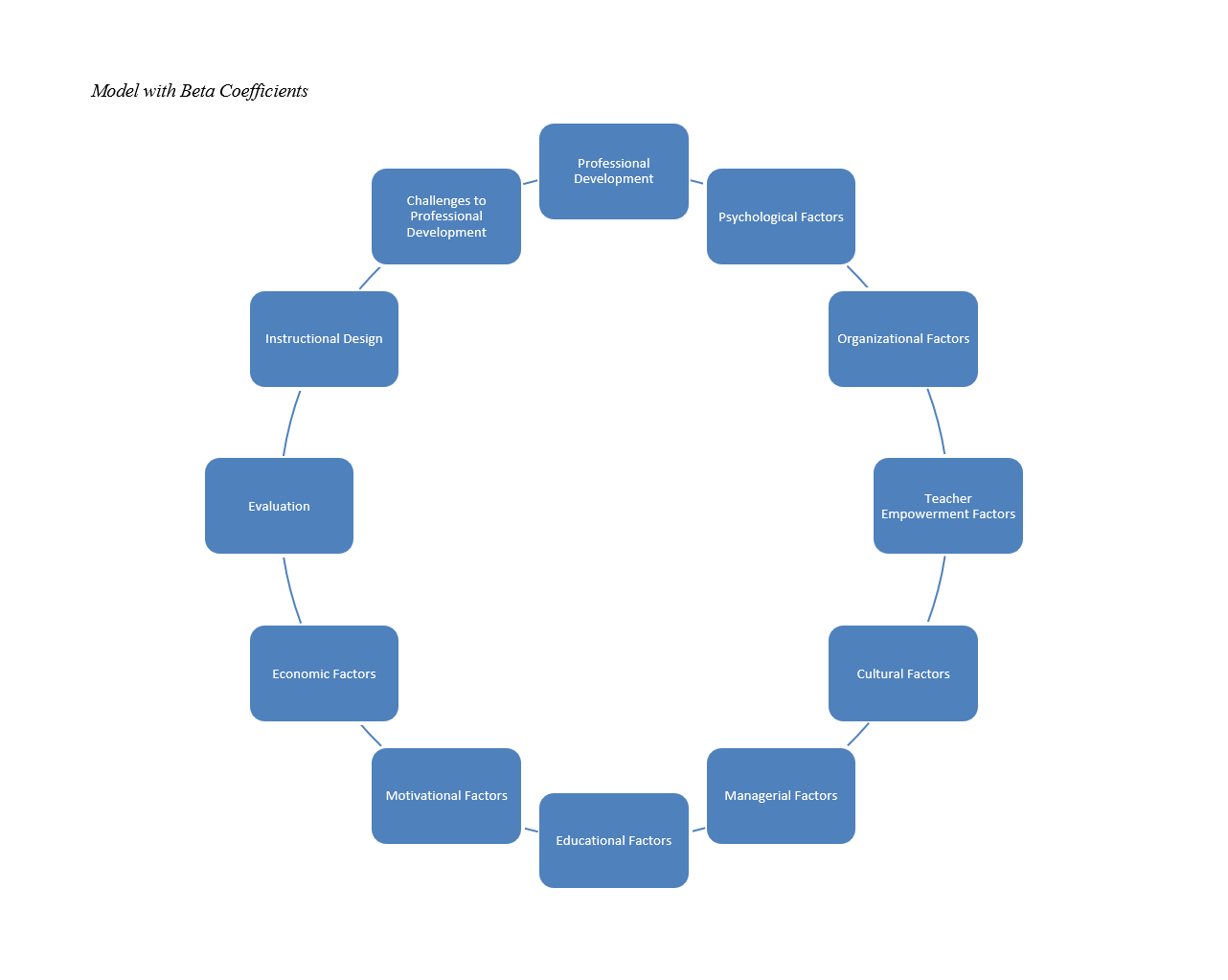Model of Professional Development for Teachers: Components, Factors, and Approaches
Keywords:
Model of professional development for teachers, elementary schools, components, factors, approachesAbstract
Objective: The present research aims to identify the components, factors, and influential approaches on the professional development of teachers and to design an appropriate model for elementary schools.
Methodology: The study was conducted qualitatively using thematic analysis. The research population consisted of academic experts and education specialists, who were selected through purposive sampling. The number of participants in the study was determined based on the logic of sampling in qualitative research and the principle of theoretical saturation, including 12 experts and specialists in education. Semi-structured in-depth interviews were used to collect the required information in the qualitative section. For data analysis, open, axial, and selective coding systems were used.
Findings: Results indicated 108 initial codes, 22 sub-categories, and 12 main categories. The validity of the research was examined, and reliability was determined using test-retest reliability (87%) and inter-coder reliability (82%). The analysis revealed that 12 factors influence the professional development of teachers. These factors include psychological, organizational, teacher empowerment, cultural, managerial, educational, motivational, economic, evaluative, instructional design, and challenge-related components.
Conclusion: Presenting a model for the professional development of teachers is one of the most important issues in the educational system. Therefore, by strategic planning, educational needs assessment, and considering modern approaches, the groundwork for improving the current conditions of professional development for teachers in education can be established.
Downloads

Downloads
Additional Files
Published
Submitted
Revised
Accepted
Issue
Section
License
Copyright (c) 2024 Fahimeh Khanalizadeh (Author); Seif Elah Fazl Elahi (Corresponding Author); Hossein Karimian, Naghi Kamali (Author)

This work is licensed under a Creative Commons Attribution-NonCommercial 4.0 International License.















